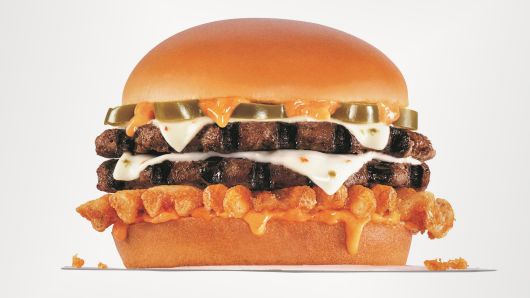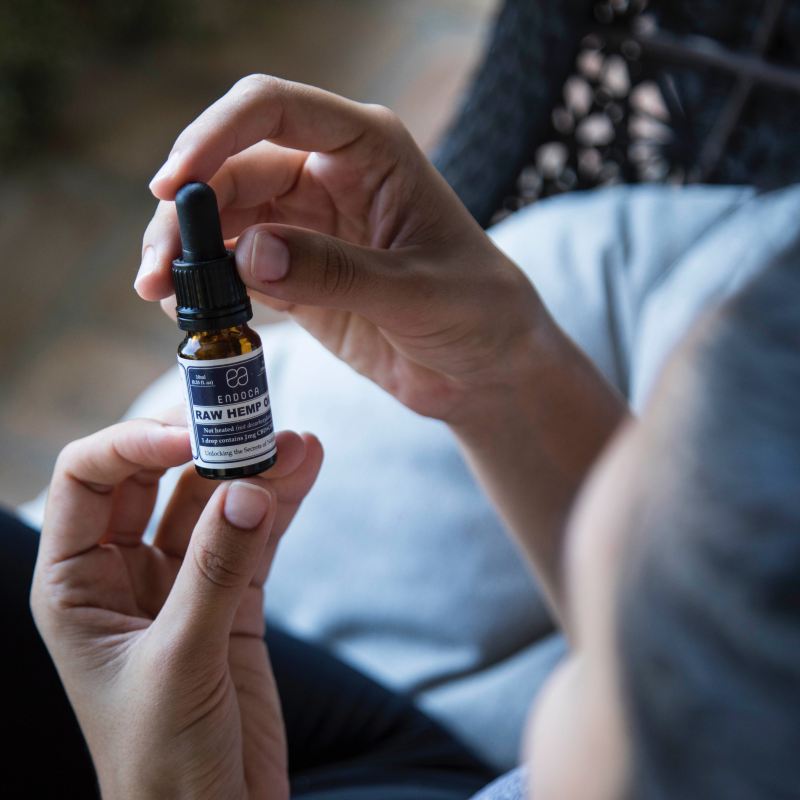Nearly as old as the weed-fueled tradition of 4/20 is the custom of American businesses offering up familiar promotions with less-than-subtle nods to munchies and dry eyes. Last Saturday, all around the U.S. and Canada, brownies and nachos and sandwiches were discounted to sell at $4.20. And in states where the substance is legal, there were festivals along with reports of online cannabis stores seeing their servers crash.
Though the laws and jam bands may change, it can feel like there’s nothing new under the sun on 4/20. However, this year’s National Pot Day marked the debut of new contender, cannabidiol (CBD), whose cannabis-and-hemp-based mystique has turned it into a popular medicinal juggernaut touted by wellness gurus and eyed warily by dads and WebMD.
CBD, for the uninitiated, claims many of the benefits of THC without the psychoactive signature effect and occasional paranoia. Its fans, advocates and growing legions of marketers claim that CBD rendered in forms as varied as edibles, tonics, tinctures, ointments and oils can mitigate the effects of everything from PTSD and PMS to epilepsy and anxiety in pets. To say CBD has enjoyed a surge in popularity in the past few years is exactly the kind of understatement that someone blissed up by a 20-milligram CBD lozenge would make. (Despite its relatively new presence in many markets, one industry observer estimates that the CBD market will reach $22 billion by 2022.)
This past Saturday, though, CBD officially reached the point that signals when something has truly gone mainstream: it became part of a fast-food campaign. Ahead of this weekend’s 4/20 festivities, Carl’s Jr., the chain known for its questionable ads and over-indulgent burgers, added its formal entry to the CBD canon. “The burger chain’s Rocky Mountain High CheeseBurger Delight features two beef patties, pickled jalapeños, pepper jack cheese, waffle fries — and about 5 milligrams of hemp-derived CBD extract in the burger chain’s Santa Fe Sauce,” CNBC reported.
Despite only being available at one store in Denver, the mystical burger made national news. On its Instagram account, Carl’s Jr. featured one sojourner who trekked 850 miles from St. Louis to be the very first person in line. By one manager’s account, over 100 of $4.20 burgers were sold in the first hour after the store’s 6 AM opening and the supply of 1,000 specialty burgers was said to be exhausted before the day’s fabled four o’clock hour.
The Rocky Mountain High CheeseBurger Delight gambit is the perfect capsule (if you will) of the hype and confusion that surrounds CBD. While the Carl’s Jr. drive-thru line in northern Denver grew ten-deep for the $4 burger crowd, self-styled herbalist shops were spending their 4/20s combating the very perceptions of CBD as the latest trend in the wellness churn or a new and hazy form of self-medication.

The Alchemist’s Kitchen is a plant-sanctifying remedy shop in the East Village whose website offers the choices of shopping either category or intention. The store features everything from $30 CBD truffles to $65 intimacy-enhancing oils to copies of Michael Pollan’s book on the benefits of taking psychedelics, How to Change Your Mind. Needless to say, the Carl’s Jr. CBD-infused burger was not an admired topic of conversation there. “Because of how popular it is, there’s a lot of CBD oil out there that’s not actually CBD,” one clerk dutifully explained. “It either wouldn’t have any effect on you or it has chemicals in it or unsafe ingredients.” She implored me to steer clear of the growing big-box CBD offerings (and burgers) and seek out for brands that were tested, organic, and locally grown.
Viewing the shelves of small-batch CBD honey, topical sprays and bars of soap, the CBD dilemma reveals itself. On one hand, it’s meant to be part of a holistic cannabis culture that hopes to be taken seriously by legislators and the general consuming public. But because CBD is currently unregulated, it can be anything to anyone seeking an opportunity to cash in on a trend. In the past few months alone, CBD products have spread from small outfits and natural food stores to beauty aisles, medical offices, supermarkets and national pharmacies like CVS and Walgreens.
Mix the explosive growth of this market with the lack of oversight and the lack of research on the effects of CBD, and you get the potential for a product that could very well ease epilepsy or… have the same effect as the bag of pencil shavings that high schoolers sell. With such a wide-open, amorphous field, every product can afford to make a different promise.
On a shelf above the Greek yogurt at a bodega around the corner from The Alchemist’s Kitchen, sat $6 cans of Recess, a hemp-infused flavored sparkling drink that wouldn’t look out of place in a fridge full of La Croix. Recess, in addition to boasting some Instagrammable cans, promises “calm and focus,” the spiritual fulfillment of everything your fourth cup of coffee isn’t. Down the block, a pharmacy selling $50 bottles of CBD oil and $30 canisters of gummies offered literature suggesting that CBD might aid struggles with memory, mood, depression, and infertility.
At some point, the uncertainty of health benefits and the proliferation of products featuring CBD may prompt the hand of regulators. In New York, the Department of Health has said it will begin slapping restaurants with fines for using CBD come July. Elsewhere, for now at least, the CBD craze continues. You can take a CBD crawl in Portland, Oregon, visit a CBD coffee shop in Houston, Texas, or top your greens with CBD salad dressing in Vermont. Indeed, nearly 75 percent of the chefs surveyed by the National Restaurant Association forecasted food infused with CBD or cannabis at the hottest culinary trend of 2019.
Even the specter of legal limbo isn’t constraining the heady possibilities. “There’s people out there that are willing to risk not being in compliance with local and other regulations in order to not risk being left behind,” said one restaurant industry analyst.
With the hype-cycle currently hurtling toward its crest, nearly anything seems possible. CBD could be the next Four Loko, a kitschy piece of retail mischief laid low by regulators. Or maybe it will share the fate of oxygen bars, a craze widely embraced and then slowly forgotten. Or maybe it will be the next kale. For now, it’s a party and everyone is invited.
Whether you’re looking to get into shape, or just get out of a funk, The Charge has got you covered. Sign up for our new wellness newsletter today.
























